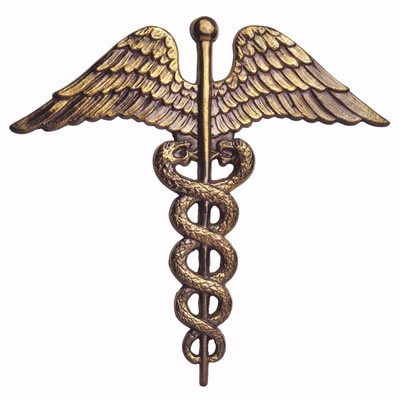|
This e-newsletter is sponsored by
|
|
Contact Us | |
American Society of
Bariatric Physicians
2821 S. Parker Road, Ste. 625
Aurora, CO 80014
office 303.770.2526 | asbp.org
Staff
Laurie Traetow, CPA
Executive Director
laurie@asbp.org
Karen Brenning
Office Manager &
Membership Coordinator
karen@asbp.org
Heidi Gordon
Director of Marketing &
Communications
heidi@asbp.org
Anna Hansen
Membership &
Exhibit Sales Manager
anna@asbp.org
Dana Mansell
CME Director &
Business Manager
dana@asbp.org
Stacy Schmidt, Ph.D.
Health Director
stacy@asbp.org |
|
|
|
Obesity Medicine e-Weekly |
|
News
CardioCare Live presents virtual diabetes education summit on Jan. 16
 You are invited to enjoy a complimentary registration to view renowned cardiovascular experts--live and online--discuss the latest treatment options and new therapies in diabetes care. On Wednesday, Jan. 16, from 9 a.m.-noon (EST), you may choose from three one-hour interactive continuing medical education (CME) sessions led by acknowledged experts in the topics of new antidiabetic drugs, type 2 diabetes and associated obesity, and future perspectives on diabetes prevention. Click here to download a flier with complete details about the event. Also, be sure to look for the ASBP booth in the virtual exhibit hall! You are invited to enjoy a complimentary registration to view renowned cardiovascular experts--live and online--discuss the latest treatment options and new therapies in diabetes care. On Wednesday, Jan. 16, from 9 a.m.-noon (EST), you may choose from three one-hour interactive continuing medical education (CME) sessions led by acknowledged experts in the topics of new antidiabetic drugs, type 2 diabetes and associated obesity, and future perspectives on diabetes prevention. Click here to download a flier with complete details about the event. Also, be sure to look for the ASBP booth in the virtual exhibit hall!
Strategies to Overcome & Prevent (STOP) Obesity Alliance hosts webinar that examines coverage of obesity services at the state level
Join the STOP Obesity Alliance for a webinar on Monday, Jan. 14, from 12:30-1:30 p.m. (EST). Experts will discuss the pros and cons of integrating obesity treatment into state essential health benefits packages. Click here for more information, including a registration link.
Research shows physicians admit feeling underqualified and lacking necessary education to treat obesity
Obesity Action Coalition (OAC) releases Understanding Your Weight-loss Options patient brochure
 This week, OAC This week, OAC debuted its Understanding Your Weight-loss Options patient brochure. This 40-page brochure offers patients the most up-to-date information on safe and effective weight-loss options for individuals wanting to address their weight and improve their health. It is an excellent resource for anyone regardless of where they may be in their weight-loss journey. The brochure covers a vast array of weight-loss options such as behavior modification, physician-supervised weight-loss, bariatric surgery and more. In addition to information on weight-loss options, the brochure also offers a body mass index chart, full-color illustrations of the most commonly performed bariatric surgeries, tools to develop weight-loss goals and much more. To view the brochure online and/or order a complimentary copy, click here. |
Obesity Updates: Click titles to view articles
Public perceptions of obesity in the United States
The Associated Press-NORC Center for Public Affairs Research recently published the findings from its survey on the public's perception of the reasons behind the rising rates of obesity in the United States, the connection between obesity and health issues and the role of government in addressing obesity. The public appears knowledgeable about many of the consequences of obesity; however, when asked to list the most serious health impacts of being overweight or obese, 78 percent mentioned heart disease or heart attack and 70 percent mentioned diabetes. But individuals were far less likely to mention other serious health impacts including high blood pressure (21 percent), arthritis or joint problems (14 percent), high cholesterol (12 percent), depression and mental health issues (11 percent), stroke (10 percent), death (8 percent) and cancer (7 percent).
High-protein effects on energy intake
According to the protein leverage hypothesis, small changes in the dietary percentage of protein may have substantial effects on energy intake. This hypothesis has not been confirmed with specific evidence; therefore, a controlled dietary intervention study was conducted to determine ad libitum energy intake, body weight changes and appetite profile in response to use of diets containing 5 percent, 15 percent and 30 percent of energy from protein from a milk or plant source during 12 consecutive days. Total energy intake was significantly lower in the high-protein (1722 ± 736 kcal/d) condition than in the low-protein (2228 ± 840 kcal/d) and normal-protein (2298 ± 834 kcal/d) conditions (P = 0.001). Differences in energy intake between conditions were not influenced by age, sex, body mass index or type of protein. Appetite ratings did not differ significantly, yet fluctuations in hunger (P = 0.019) and desire to eat (P = 0.026) over the day were attenuated in the high-protein condition compared with the normal-protein condition. This study provides evidence to support the protein leverage hypothesis in the fact that individuals under-ate relative to energy balance from diets containing a higher protein-to-carbohydrate-plus-fat ratio.
Polycystic ovarian syndrome (PCOS) in relation to body mass index
PCOS affects 4 to 12 percent of women of reproductive age. Recent studies have shown that insulin resistance is a key feature in the evolution of PCOS and predisposes to type 2 diabetes over time. Although the majority of PCOS patients are overweight or obese, some of them may have normal weight. This study aimed to determine the proportion of PCOS subjects who are not overweight/obese and to compare the clinical, hormonal and metabolic profile of lean and overweight/obese PCOS women. Results from the study show that patients with PCOS, irrespective of their weight, demonstrate clinical manifestations such as irregular cycles; acne and hirsutism; and hormonal abnormalities such as higher LH, LH/FSH, and testosterone levels. Insulin resistance is inherent to PCOS, regardless of weight. Metabolic abnormalities are more common when obesity is present. It is suggested that all PCOS patients should be considered at risk of atherosclerosis given the presence of insulin resistance; therefore, periodic monitoring of blood pressure, lipids and an annual OGTT for obese PCOS patients should be performed. |
|
News
January issue of Capitol Resource now available
 This month's issue of the Society's monthly advocacy newsletter, Capitol Resource, is now available for download. Topics include: This month's issue of the Society's monthly advocacy newsletter, Capitol Resource, is now available for download. Topics include:
- Obesity Community Responds to Proposed Regulations on Essential Health Benefits Coverage of Obesity Treatment Services
- Obesity Community Meets with Office of Health Reform |
|
Education
Save the date for ASBP Spring Obesity Conference in San Diego on April 24-28
 Save the date for the ASBP 2013 Spring Obesity Conference in San Diego on April 24-28 at the Manchester Grand Hyatt. Further details will be announced in the near future; however, online registration is now open, or you may download and complete a PDF registration form for return via fax or USPS mail. Hotel reservations can be made online and start at $199+taxes (single/double). Save the date for the ASBP 2013 Spring Obesity Conference in San Diego on April 24-28 at the Manchester Grand Hyatt. Further details will be announced in the near future; however, online registration is now open, or you may download and complete a PDF registration form for return via fax or USPS mail. Hotel reservations can be made online and start at $199+taxes (single/double).
Save $26 on Obesity Basic Medical Treatment Course: Register by Wednesday prior to course date
 The Obesity Medicine Association, a division of the Society, recently announced a partial list of 2013 dates and locations for the popular Obesity Basic Medical Treatment Course. Attendees earn 7 hours of continuing medical education, plus ASBP offers a $30 discount on the second and subsequent registrations received from the same office. The registration fee is $199, if received by the Wednesday prior to the course date. The course provides basic clinical information and tools to effectively treat obese patients and their related conditions. Learn more by downloading a PDF brochure. Click here to download a registration form and read details about the course. Online registration is available for these dates and locations: The Obesity Medicine Association, a division of the Society, recently announced a partial list of 2013 dates and locations for the popular Obesity Basic Medical Treatment Course. Attendees earn 7 hours of continuing medical education, plus ASBP offers a $30 discount on the second and subsequent registrations received from the same office. The registration fee is $199, if received by the Wednesday prior to the course date. The course provides basic clinical information and tools to effectively treat obese patients and their related conditions. Learn more by downloading a PDF brochure. Click here to download a registration form and read details about the course. Online registration is available for these dates and locations:
- Jan 19: Columbus, Ohio 
- Jan. 26: Independence, Mo.
- Feb. 2: Birmingham, Ala.
- Feb. 23: Raleigh-Durham, N.C.
- March 2: Buffalo, N.Y.
- March 9: Oklahoma City
- March 16: Richmond, Va.
- March 23: Louisville, Ky.
Practicing in Texas? Then, don't miss ASBP lectures during the TABS Annual Meeting in Dallas on Jan. 26
 For the first time, ASBP has been invited to offer topical obesity medicine lectures in cooperation with the Texas Association for Bariatric Surgery (TABS) Annual Meeting, which is on Saturday, Jan. 26, in Dallas. Engage with your fellow obesity care colleagues, and let's strive together for evidenced-based comprehensive obesity treatment coverage in Texas! Click here to read more information about this exciting opportunity. For the first time, ASBP has been invited to offer topical obesity medicine lectures in cooperation with the Texas Association for Bariatric Surgery (TABS) Annual Meeting, which is on Saturday, Jan. 26, in Dallas. Engage with your fellow obesity care colleagues, and let's strive together for evidenced-based comprehensive obesity treatment coverage in Texas! Click here to read more information about this exciting opportunity.
|
|
|
|
|